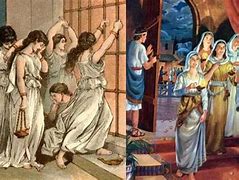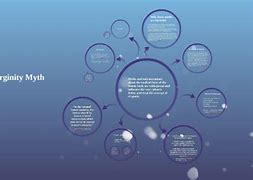The Virginity Myth
Introduction
In a world that constantly evolves, some concepts remain stubbornly entrenched in our societies. One such idea is the notion of virginity—a concept that has been romanticized, vilified, and often misunderstood. For many, virginity symbolizes purity and moral integrity, especially for women. But what happens when this obsession with virginity turns into a societal burden? In this article, we will challenge the age-old concept of virginity, explore its implications on women’s lives, and discuss how it perpetuates harmful gender stereotypes.
Understanding the Concept of Virginity
What is Virginity?
Virginity is traditionally defined as the state of never having engaged in sexual intercourse. However, its interpretation varies widely across cultures and religions. In many societies, particularly those influenced by patriarchal values, virginity is often equated with a woman’s worth.

The Cultural Significance of Virginity
In various cultures, virginity is seen as a virtue tied to honor and family reputation. For instance, in some Middle Eastern societies, a woman’s virginity is considered crucial for her marriage prospects. The loss of virginity before marriage can lead to severe social repercussions, including shame and ostracism.
Historical Context of Virginity
Ancient Perspectives
Historically, the concept of virginity has been linked to ideas of purity and morality. In ancient Rome and Greece, virginity was valued but not always strictly enforced. Women were often expected to remain virgins until marriage, but men faced little scrutiny regarding their sexual behavior.
The Influence of Religion
Religious teachings have played a significant role in shaping perceptions of virginity. In Christianity, for example, the Virgin Mary is venerated as a symbol of purity. This reverence has contributed to the idealization of female virginity throughout history.

The Virginity Myth in Modern Society
The Double Standard
The obsession with virginity creates a stark double standard between men and women. While women are often judged harshly for their sexual choices, men are frequently celebrated for their sexual conquests. This disparity reinforces harmful stereotypes about gender roles and sexuality.
Psychological Impact on Women
The pressure to maintain virginity can lead to significant psychological stress for women. Many feel they must conform to societal expectations or risk being labeled as promiscuous or immoral.
Guilt and Shame
Women who engage in sexual activity may experience guilt or shame due to societal pressures surrounding virginity. This emotional turmoil can affect their mental health and self-esteem.
The Role of Education and Awareness
Sexual Education
Comprehensive sexual education plays a crucial role in dismantling the virginity myth. By providing accurate information about sexuality, consent, and relationships, we can empower individuals to make informed choices without fear or shame.
Challenging Stereotypes
Educating both men and women about the harmful effects of the virginity myth can help challenge existing stereotypes. Open discussions about sexuality can foster understanding and acceptance.
The Impact on Relationships
Navigating Romantic Relationships
The pressure surrounding virginity can complicate romantic relationships. Many young people feel anxious about their sexual experiences or lack thereof, leading to misunderstandings between partners.
Communication is Key
Encouraging open communication about sexual experiences and expectations can help alleviate some of this pressure. Partners should feel comfortable discussing their feelings without fear of judgment.
Societal Expectations vs. Personal Choices
Women often find themselves torn between societal expectations regarding virginity and their own desires for exploration and intimacy. This conflict can lead to confusion and frustration in relationships.
The Consequences of the Virginity Myth
Social Stigmas
Women who are perceived as non-virgins may face social stigmas that affect their personal and professional lives. These stigmas can limit opportunities for advancement and create barriers to forming meaningful relationships.
Violence Against Women
In extreme cases, the emphasis on virginity can lead to violence against women who are accused of losing their virginity before marriage. Honor killings are one such example where women face fatal consequences for perceived violations of societal norms.
Moving Beyond the Virginity Myth
Embracing Sexual Autonomy
It’s essential to promote the idea that individuals should have autonomy over their bodies and sexual choices without external judgment or pressure. Empowering women to make decisions based on their desires rather than societal expectations is crucial for fostering equality.
Celebrating Diversity in Sexual Experiences
Recognizing that everyone’s journey with sexuality is unique can help dismantle the rigid standards associated with virginity. Celebrating diverse experiences allows individuals to embrace their identities fully.
The Role of Media in Shaping Perceptions
Portrayals of Virginity in Popular Culture
Media representations often reinforce traditional notions of virginity by glorifying purity while demonizing those who deviate from these ideals. Movies, television shows, and advertisements frequently perpetuate stereotypes that affect public perception.
Advocating for Change
Encouraging media creators to portray more realistic narratives around sexuality can help shift societal attitudes toward a more accepting view that celebrates individual choices rather than stigmatizes them.
Conclusion: Redefining Virginity in Modern Society
The obsession with virginity has deep roots in cultural norms but must be reevaluated as society progresses toward greater equality and understanding. By challenging outdated beliefs surrounding this concept—embracing sexual autonomy while promoting education—we can create an environment where individuals feel empowered rather than constrained by societal expectations!
Let’s work together towards breaking down these barriers—because every person deserves respect regardless of their sexual history! It’s time we redefine what it means to be “pure” in today’s world—focusing on authenticity instead!
FAQs
1. What is the historical significance of virginity?
Historically, virginity has been tied to concepts of purity and morality; its significance varies across cultures but often reflects societal values regarding women’s roles within families or communities.
2. How does society’s obsession with virginity affect women?
This obsession creates pressure on women regarding their sexual choices leading to feelings of guilt or shame; it also reinforces harmful stereotypes about gender roles within relationships!
3. What role does education play in addressing the virginity myth?
Comprehensive sexual education helps dismantle myths surrounding virginity by providing accurate information about sexuality while empowering individuals to make informed choices without fear!
4. How can we challenge stereotypes related to virginity?
Encouraging open discussions about sexuality among peers—promoting understanding acceptance—can help challenge existing stereotypes while fostering healthier relationships!
5. What are some consequences faced by non-virgin women?
Women perceived as non-virgins may encounter social stigmas impacting personal/professional opportunities; extreme cases include violence against those accused of violating societal norms surrounding purity!


